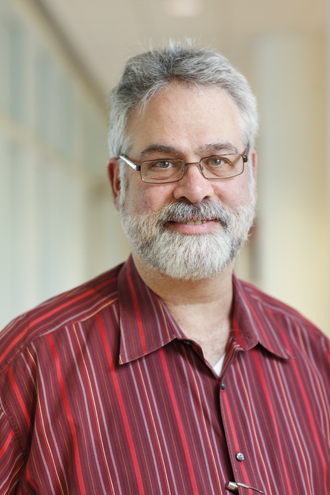Professor Jordan Pollack recognized for outstanding contributions to computer science
Pollack has spent decades researching artificial life and computer-simulated evolution.
 Photo: Mike Lovett
Photo: Mike LovettJordan Pollack
Jordan Pollack, chair of the computer science department, has received the International Society for Artificial Life’s 2017 Lifetime Achievement Award in recognition of his work on computer-simulated evolution and artificial life forms.
Pollack, who came to Brandeis in 1994, develops computational and mathematical models that can mimic evolution. The grand objective is to achieve artificial intelligence by enabling computers to continually “evolve” entities of greater complexity and intelligence without the need for programming.
In 1997, Pollack and Pablo Funes, PhD ’01, wrote a computer program that applied the laws of physics to building robots with Lego bricks. The computer then “evolved” more complicated structures on its own. The research, which was published in the journal Artificial Life, garnered Pollack international press as well as funding for another decade of research on evolving robotic life forms.
“I’m very happy to be recognized by my chosen scientific field,” Pollack said.
Pollack was given the award last week at the European Conference on Artificial Life, in Lyon, France. The Conference also gave its "Best Paper" award to a recent publication by Pollack and his PhD student Nick Moran.
BrandeisNow sat down with Pollack when he returned to campus to talk about his research and career.
How far along are we in developing artificial life?
The progress is slow and hard won. People are really amazed when they fathom the complexity of even single-cell creatures. It takes a supercomputer to simulate even one neuron. And to really make progress in terms of automated robot design and manufacture, you would need a tremendous breakthrough in manufacturing, like 3D printing that can print not just plastic, but metal and rubber and springs — a Star Trek replicator level of fabrication. So yes, we do have a long way to go.
What is the highlight of your career?
I’ve had two-dozen career highlights, and those are the PhDs and the postdocs that I’ve mentored in this field.
What advice do you have for students considering a career in computer science?
Write computer programs for every process that you can think of, even though you won’t approach the 10-billion lines of code necessary to create artificial intelligence.
Categories: Research, Science and Technology





